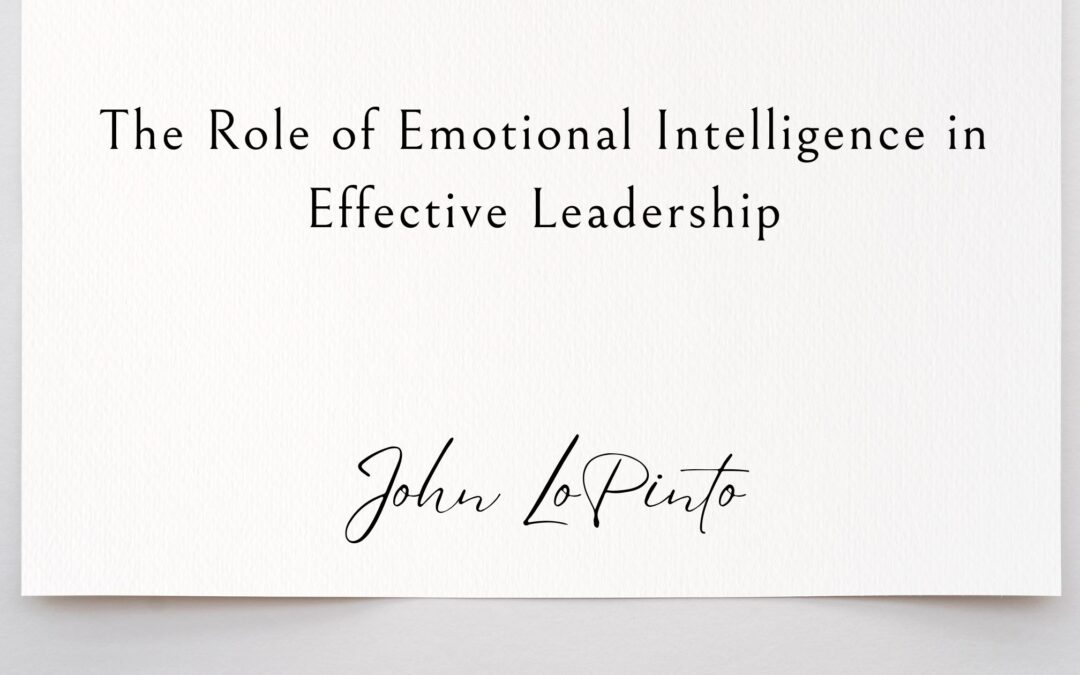In today’s fast-paced and complex business environment, leadership requires more than just strategic thinking and technical expertise. The most effective leaders are those who can connect, inspire, and adapt—and that starts with emotional intelligence (EI). Emotional intelligence is the ability to recognize, understand, and manage one’s own emotions, while also being attuned to the emotions of others. It’s not a soft skill—it’s a core leadership competency.
Breaking Down Emotional Intelligence
Emotional intelligence consists of five key components:
-
Self-awareness: Understanding your own emotions, strengths, and limitations.
-
Self-regulation: Managing your emotions in healthy ways, especially under stress.
-
Motivation: Using intrinsic drive to achieve goals and remain resilient.
-
Empathy: Recognizing and considering others’ feelings and perspectives.
-
Social skills: Building strong relationships, managing conflict, and influencing others effectively.
Together, these elements enable leaders to create environments where trust, collaboration, and performance thrive.
Self-Awareness and Self-Regulation: The Foundation of Leadership Presence
Effective leadership begins with self-awareness. Leaders who understand their emotional triggers and decision-making patterns are better equipped to stay composed during high-pressure situations. Self-regulation ensures that emotions like frustration or anxiety don’t spill over into team dynamics. This emotional steadiness builds credibility and sets the tone for a productive workplace.
Empathy and Social Skills: Leading Through Connection
Empathy is not about being overly emotional—it’s about being emotionally informed. Leaders who demonstrate empathy listen actively, understand team concerns, and respond thoughtfully. This fosters a sense of psychological safety, which research shows is essential for innovation and employee engagement. Social skills allow emotionally intelligent leaders to navigate interpersonal relationships, resolve conflicts constructively, and inspire loyalty among team members.
The Business Impact of Emotionally Intelligent Leadership
Organizations led by emotionally intelligent leaders often see stronger employee retention, better team collaboration, and higher morale. When leaders can communicate with clarity, manage stress effectively, and relate well to others, the entire organization benefits. Studies have shown that emotional intelligence is a stronger predictor of leadership success than IQ or technical skill alone. In high-stakes environments, it’s often the leader’s emotional acumen—not just their strategy—that determines the outcome.
Developing Emotional Intelligence
Unlike IQ, emotional intelligence can be developed. Leaders can improve their EI by seeking feedback, practicing mindfulness, developing active listening skills, and engaging in coaching or mentorship. The process requires vulnerability, reflection, and a willingness to grow—but the rewards are significant. A more emotionally intelligent leader is not only more effective but also more resilient and adaptable in the face of change.
Final Thoughts
In a world where leadership challenges are more human than ever—ranging from managing remote teams to navigating uncertainty—emotional intelligence has become a strategic asset. Leaders who cultivate it are better prepared to build trust, influence others, and drive sustainable success. Emotional intelligence is not just a nice-to-have quality. It’s a must-have for anyone serious about leading with impact.

